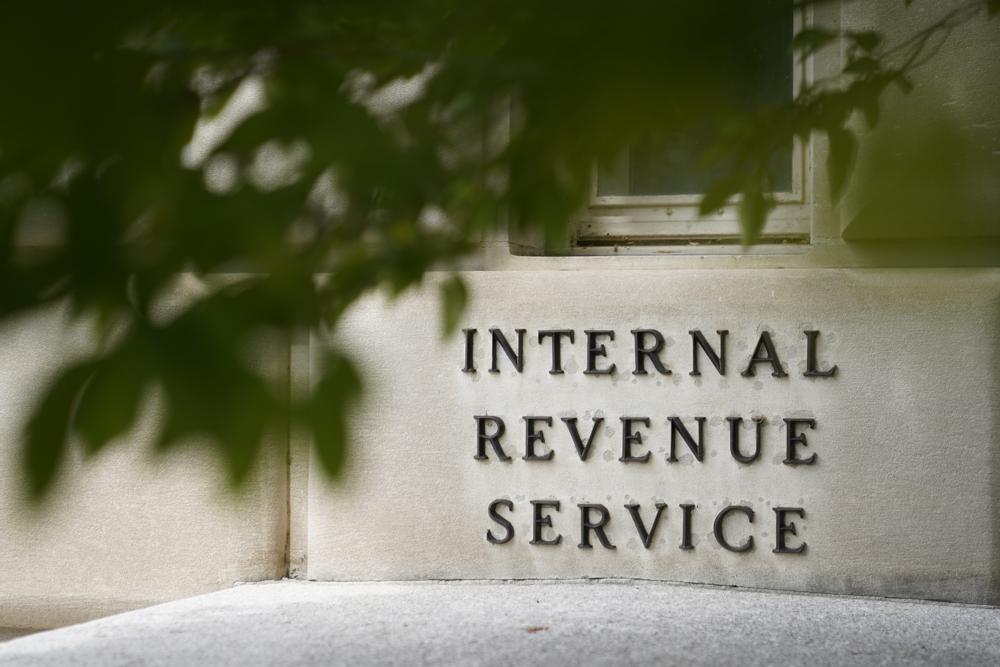When it comes to contacting the IRS during tax season, there is nothing more frustrating than being placed on hold for an indefinite period of time.
Not everyone, to be sure.
E. Martin Davidoff’s accounting firm pays upwards of $5,000 a year with a company that can expedite the process of getting through to an IRS customer service representative for him and his clients.
He claims that by subscribing to enQ’s line-jumping service, he saves hours per day that he would otherwise spend waiting to speak with a customer support representative.
Mr. Davidoff, who is the National Tax Controversy Practice Leader for Prager Metis in New Jersey, described the company as “the essence of American enterprise.”
Consumer groups, on the other hand, are less enthusiastic about enQ, viewing it as a pay-to-play setup that allows those who can afford it to obtain speedy access to what should otherwise be a free government service that is available to everyone.
Members of Congress from both parties are also concerned about the situation. A hearing on customer service difficulties at the Internal Revenue Service (IRS), where contact volumes have hit record levels, is scheduled for Thursday before the Senate Finance Committee.
“Taxpayers should not be required to pay a private corporation $1,000 in order to have their phone calls handled by the Internal Revenue Service. “It’s maddening,” Sen. Ron Wyden of Oregon, the committee’s chairman, wrote in an email to the Associated Press.
“Rebuilding the agency so that it can better serve hardworking taxpayers is a high priority, and the committee will take up the topic again this week,” the committee chairman said.
Earlier this year, Sens. Bill Cassidy (R-La.), Todd Young (R-Ind.), Bob Menendez (D-N.J.), and Mark Warner (D-Va.) contacted the Internal Revenue Service (IRS) to request that the agency investigate how the company’s robocalls to the IRS impair agency phone systems.
The company’s bots are routinely placed in the queue for various IRS service lines, and then clients who ring into enQ can trade places with the bots to go to the front of the waiting list if they like.
Tax professionals who require regular access to IRS services throughout the hectic filing season say that, while enQ is contentious, it is important for them to perform complex tax work during the busy filing season.
The service, which can be purchased for $300 a month or $1,000 a year, claims to reduce phone hold times by up to 90 percent compared to traditional methods.
And the magnitude of the problem is enormous. The Internal Revenue Service received more than 1,500 calls per second during the peak of the 2021 filing season.
Erin Collins, the National Taxpayer Advocate who also acts as an IRS ombudsman, said before a House subcommittee earlier this month that taxpayers would have greater trouble contacting the IRS by phone in 2021 than they had in previous years.
Because of labor shortages and a backlog of work, only 11 percent of the 282 million phone calls received in the previous year were answered.
Andrew Valiente, the company’s founder, and CEO, declined to provide further details, noting in an email that he was “hyper-focused on establishing” the company at the time. On his website, he claims that his strategy may be “unorthodox,” but that it is also a “no-brainer” because it prevents him from having to wait on hold.
Mark Steber, chief tax officer of Jackson Hewitt Tax Service, is one of the numerous certified public accountants (CPAs) who utilize enQ.
In the purpose of helping American taxpayers, Steber said, “I kind of fault the IRS for not having financing and resources — but they haven’t been financed in 20 years.” “We’re conflicted that it takes money to access a free government service,” Steber added.
Legislation that would have given the IRS billions of dollars to boost its enforcement capability and modernize everything from printers to photocopiers to the agency’s staffing levels and upgrading telephone service is blocked in Congress.
It can seem like winning the jackpot when you finally get through to an IRS agent, according to Robert Nassau, the director of the Low Income Taxpayer Clinic at Syracuse University College of Law.
I’m not sure how much more difficult it has become for folks like me to get through because of enQ, but these bots are most likely trying to contact the same number that I’m trying to call, he said.
Approximately 10 law students per semester work under the supervision of Nassau to assist low-income individuals in preparing and filing their taxes.
In his opinion, it is unfair that when it comes to the IRS, you are essentially purchasing greater access to the service and receiving speedier access. “We’ll get through it eventually, but it could take several more days.” I can see these enQ folks losing us a couple of days’ worth of productivity. “It’s a nuisance.”
Sue Simon, director of customer help at the Internal Revenue Service, explained that taxpayers had the option of using “customer call back,” which allows them to leave a phone number for the IRS to call them later rather than waiting on hold.
“We know that individuals don’t have a lot of time, so we want them to have the option of calling them back,” she said. “I believe this is an excellent alternative that will benefit taxpayers.”
Nonetheless, Collins stated in her testimony last month that customer callback “may not be a panacea for the IRS’s phone operations.”
Customer’s callback will not be sufficient to address all 250 million calls that remained unanswered even if the IRS workforce has the capacity to answer 32 million telephone calls per year, as it did last year, according to the IRS.
